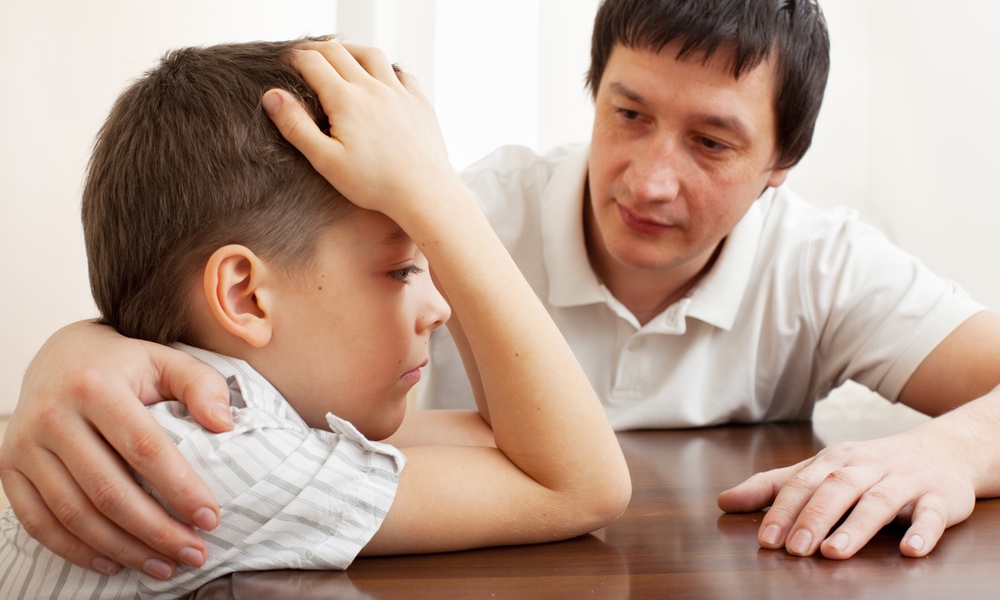Imagine you're a child intently working away on a painting, when the child sitting next to you knocks your elbow, spilling paint and spoiling the drawing. How should you react?
Was it intentional, or just a careless accident? Young children rely on their parents and teachers to guide them to make sense of their social worlds. A new study shows how parents can help inoculate their children against hostility and aggression, just by talking to their children.
Dutch parents were shown picture books that told four different stories, each in two pictures. The stories were about provocative situations, such as a child being skipped over when candy was handed out, or prevented from sitting down at a table with other children. There was no explanation as to why the provocation was occurring.Parents who help their children perceive less hostility in their social worlds reduce kids' likelihood of behaving aggressively.
When parents talked to their children, describing the harm as accidental or unintentional, the children were less likely to interpret a story, old or new, as an act of aggression.
“Young children may feel physically hurt, left out, or frustrated by their peers' actions, the intent of which, at this age, is frequently unclear,” explained Anouk van Dijk, a postdoctoral researcher in psychology at Utrecht University who led the research, in a statement.
“While most children interpret ambiguous slights as accidental, some feel they are hostile. By framing social situations in a positive way, parents can help their children perceive less hostility in their social worlds and thus, reduce their likelihood of behaving aggressively.”
Aggression tends to inspire more aggression. And a hostile perspective tends to grow stronger over time — the proverbial chip on the shoulder. Everyone has days when the world seems to be against them. The earlier that children learn not to take it personally, the better off they'll be.
The study appears in Child Development and is open access.





